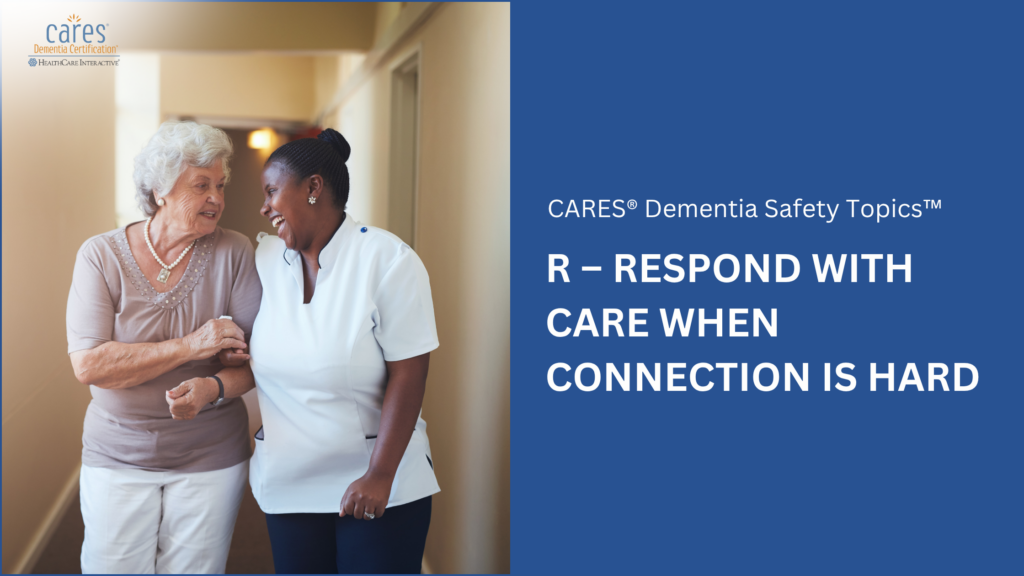R – Responding with Care
This step in the CARES® Approach is all about using what you know and what you’ve noticed to respond in a way that feels right for the person you’re caring for. Every person living with dementia is different, and responding with care—with patience, gentleness, and understanding—can make a meaningful difference in how they feel.
When Connecting Feels Difficult
Sometimes, even with the best intentions, connecting just doesn’t seem to happen. And that’s okay. There may be things going on that makes it hard for the person to engage or respond. Some common reasons might include:
• Physical discomfort such as pain, hunger, thirst, or the need to toilet
• A new medication
• Not feeling well or feeling tired
• A noisy environment
• Feeling too cold or too hot
• Participating in a task that is too difficult cognitively or physically
• Not understanding the language being spoken
• Feeling anxious
This is where responding with care truly matters. Taking a moment to pause, breathe, and gently observe can help you recognize what might be happening beneath the surface.
Responding to dementia with empathy isn’t always about fixing the problem—it’s about offering a calm, supportive presence that helps the person feel safe. Even when responding to dementia feels challenging, your thoughtful approach can provide comfort in moments of confusion or frustration.
At the heart of it all, responding with care means tuning in, being present, and showing kindness—even when words or understanding fall short.
Helping someone with dementia starts with understanding and support. To make that journey easier, get $25 OFF with code 2MYVB5 at checkout. Offer valid through June 30, 2025.

